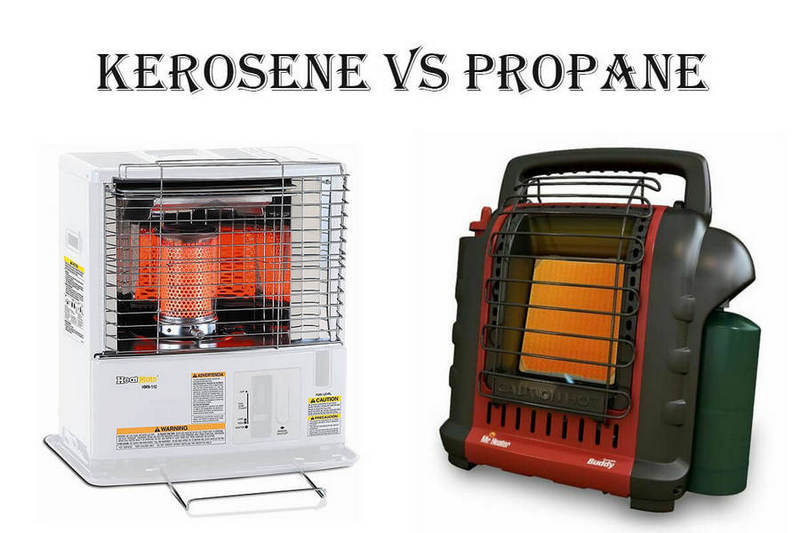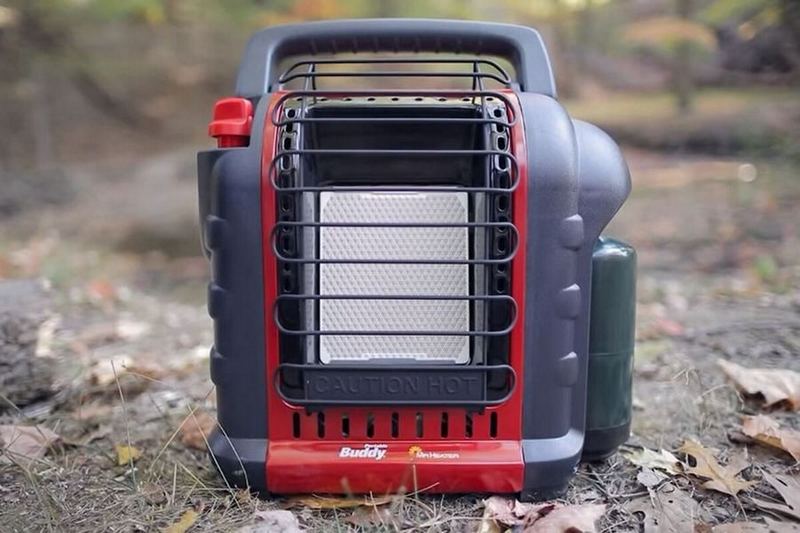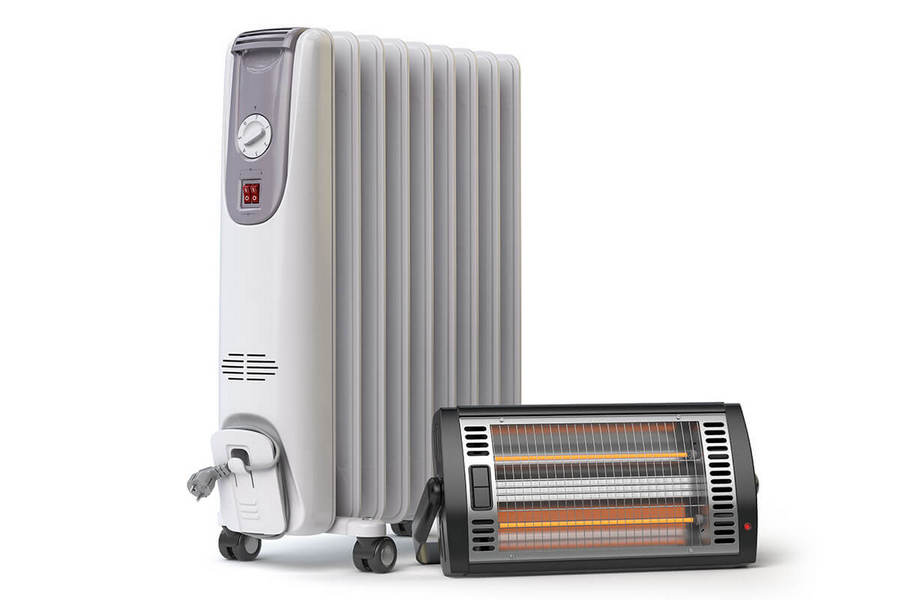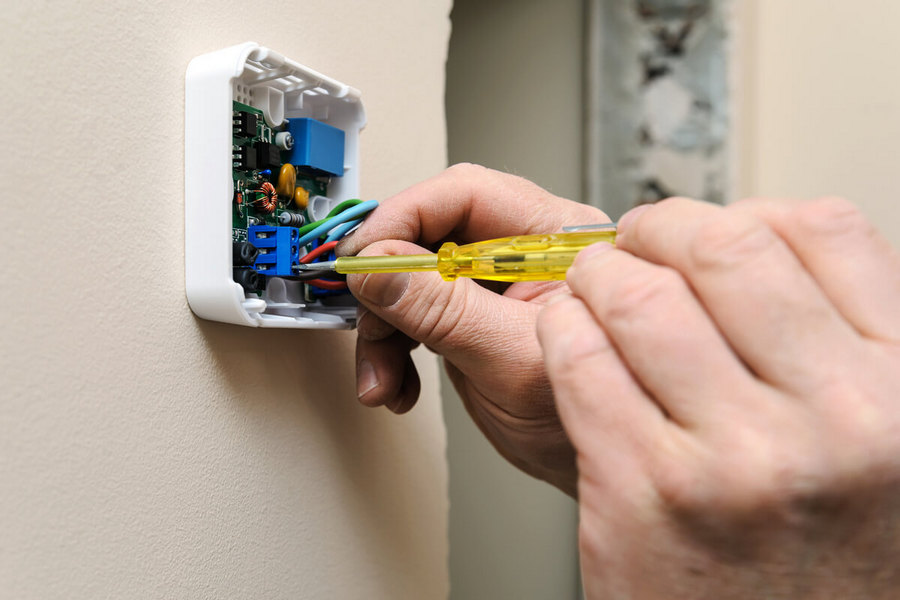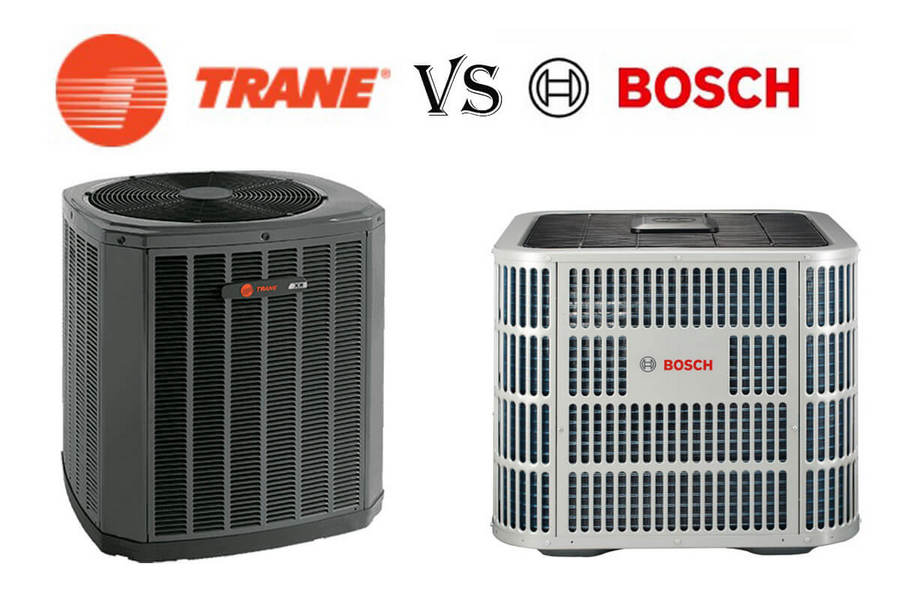A portable heater is necessary to keep you warm while camping or working in the garage during cold winter days. We understand you may have an electric heater, but you also need a backup in case of an emergency power outage.
That’s why you should select any of the propane or kerosene heaters. However, the question under discussion is which one to choose.
You are at the right place because we’ll discuss different features of both these heaters, from portability to efficiency and cost. So read along to find out more!
Is Propane Heater More Efficient Than Kerosene Heater?
Fuel efficiency plays a make-or-break role while selecting any of the propane and kerosene heaters. So the answer to the above question is yes, a propane heater is more effective than a kerosene heater.
It’s because a propane heater doesn’t emit smoke, unlike a kerosene heater. Similarly, a propane heater can warm your garage or living room quicker and offers more heaters per square foot of area.
On the other hand, kerosene heaters offer more BTUs per gallon than propane heaters. It means a kerosene heater uses less fuel and offers more efficiency in terms of cost.
Propane vs Kerosene Heater: Portability
We should consider the portability of both the heater and fuel. For example, it’s relatively easier to carry kerosene heaters than propane heaters since you also need to transport heavy propane cylinders. Alternatively, it’s convenient to store kerosene in canisters and drums.
Fuel Storage
Unfortunately, you can’t store kerosene for a long time, which leads to poor burning. That’s why you need to put some additives in the kerosene if you intend to store it for a longer time. Nonetheless, we are talking about storage for years here, not months.
The good news is you can store propane for an indefinite time without worrying about its burning efficiency.
Fuel Availability
Lastly, we can include fuel accessibility while discussing portability as it doesn’t make sense to carry a heater whose fuel isn’t available. Also, it’s easier to find propane compared to kerosene at the fuel pump.
Running Time
Both propane and kerosene heaters can run for a relatively long time, depending upon the fuel tank size. For example, both kerosene and propane heaters can run for an average of 10 hours per gallon.
However, a kerosene heater has a fuel reservoir inside the heater that you need to refuel to keep the heater running. Moreover, you can’t simply connect a larger fuel tank to a kerosene heater.
While a propane heater has the added advantage of connecting a large fuel cylinder to a propane heater. This way, you can enjoy the extended running time by connecting a fuel cylinder ranging from 20-pounds to 100-pounds without worrying about refueling.
Kerosene and Propane Safety
It’s a known fact that the kerosene and propane heater cause air pollution and release carbon monoxide, nitrogen dioxide, carbon dioxide, and sulfur dioxide.
Between kerosene and propane heaters, the propane heater is energy-efficient and burns clean. Propane heaters have a lower oxygen shut-off while the propane tanks are stored outside the house.
On the other hand, you should never use a kerosene heater while sleeping as it can lower the oxygen levels and lead to carbon monoxide build-up indoors. In this article, we discuss using kerosene heaters indoors.
It doesn’t matter whichever heater you use; it’s essential to ensure proper air ventilation while using the heaters indoors. Additionally, you can also use a carbon monoxide detector in your home to ensure your family’s safety.
Read Also: Is It Safe to Use a Patio Heater Indoors?
Heater Storage
You can store propane heaters anywhere in your garage or basement, and the same rule applies to storing propane fuel storage. However, you need to store the kerosene heater and fuel in a cool, dry place away from the sunlight.
Heater Maintenance
Propane heaters don’t require any maintenance. All you need to do is to keep them clean and check for any kind of leaks etc.
On the other hand, it’s a bit of a tedious task to maintain kerosene heaters. To ensure safety before storing the heater, you should always empty the fuel from the kerosene heater reservoir.
Next, you have to clean the kerosene heater thoroughly. Lastly, you should trim, clean, and replace the wick regularly to ensure the smooth running of the kerosene heater.
Cost of Kerosene vs Propane
In this section, we’ll consider two types of costs. One is the cost of the heater, where we don’t find any considerable difference between propane and kerosene heaters. The second one is the cost of the fuel itself, where the actual variation lies.
The cost of propane per gallon is higher than kerosene, which makes kerosene a winner here. But wait, it’s just the first part of the total cost as we don’t just consider the cost of one gallon; instead, it’s the total cost per BTU that matters.
In simple words, the energy potential of one gallon of kerosene isn’t the same as one gallon of propane. It just got interesting since kerosene roughly offers 135,000 BTUs per gallon, while propane offers around 91,330 BTUs per gallon (source).
Now, we can safely say that kerosene is a cheaper fuel as compared to propane. However, the rate of both these fuels vary in different regions or states, so it’s better to check the market price.
Conclusion
After reading the above guide, whichever heater you decide, you can’t possibly go wrong whether kerosene or propane heater. To summarize the discussion, propane heaters are a better choice for emergency or occasional use; however, kerosene offers convenience in regular use.

